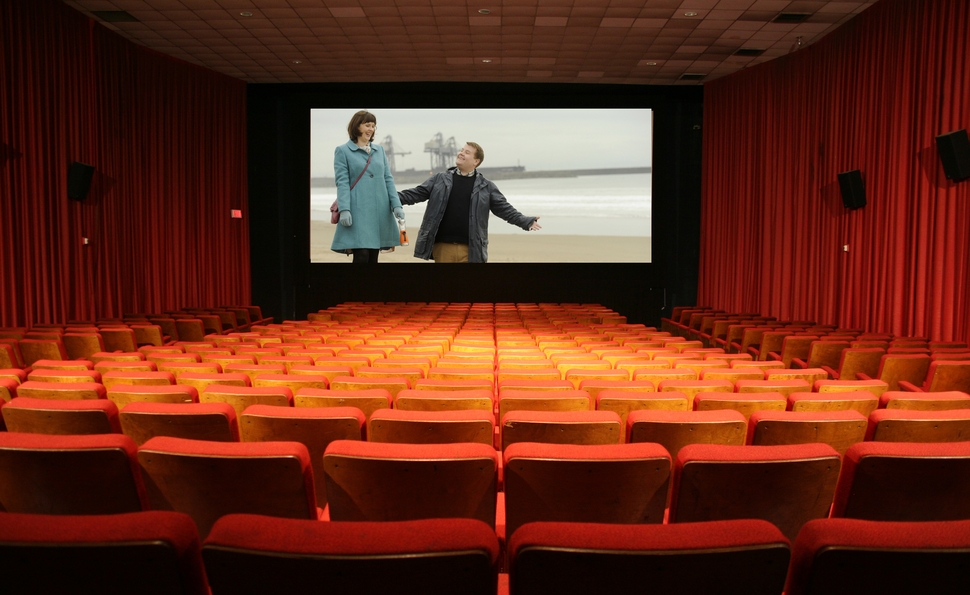1.
“Child therapists: Stop freaking out about Lena Dunham“: After Kevin D. Williamson, the man who notoriously said that women who have an abortion should be hanged, wrote a National Review piece accusing “Girls” creator Lena Dunham of child molestation (for an act she committed at age 7), Salon‘s Tracy Clark-Flory penned a level-headed rebuttal. Related: Mic.com‘s Marcie Biano argues that “The Lena Dunham Controversy Isn’t About Sexual Abuse—It’s About Sexual Exploration.” See also: Dunham’s official response regarding the accusations.
“David Finkelhor, director of the Crimes Against Children Research Center, has devoted his career to researching child sexual abuse. He’s the author of such titles as ‘Sexually Victimized Children,’ ‘Childhood Victimization,’ ‘Child Sexual Abuse’ and ‘Nursery Crimes.’ I guess you could say he’s an expert on the topic? And this is what he had to tell me in response to claims that Dunham is a sexual abuser: ‘In the sexual abuse field, we generally do not consider children age 7 as sexual abusers.’ Instead, he explains, ‘we are concerned about children that age who are ‘sexually reactive,’ meaning sexualized in a developmentally inappropriate way’ or ‘being aggressive toward and exploitive of’ their siblings or peers. That’s because that behavior can be ‘the sign that they themselves has been abused or subjected to developmentally inappropriate material,’ he said. As for whether Dunham’s behavior was ‘sexually reactive,’ he says ‘a judgment would typically require more than a single episode, especially in younger children who may not be aware of norms.’ He’s not exactly calling CPS, y’all. But he’s only the director of the Crimes Against Children Research Center, so I decided to talk to some other sources.”
2.

“The cheapening of independent film“: The Dissolve‘s Scott Tobias says that “independent movies have been rendered nearly worthless, at least in theaters.”
“There are arguments to be made in favor of the new digital order: Movie lovers don’t have to live in New York or Los Angeles to see a movie when it comes out. Distributors don’t have to pay to strike and ship prints. Viewers have a choice to see movies when they want and how they want. But the release of ‘One Chance’ symbolically underlines a point that I think is undeniable: Independent movies have been rendered nearly worthless, at least in theaters. And that isn’t limited to ‘One Chance,’ where it’s literally available right now for free. Nor is it limited to pre-theatrical or day-and-date VOD, where viewers can watch films at home before or during their theatrical runs for a fraction of the cost. It also affects movies that forego any of those arrangements and still abide by the old way of doing things. Moviegoers aren’t always aware what specific titles are available before, during, or after their theatrical runs, but on balance, there is an awareness that many can be seen early on video, and the rest will follow shortly. So the next thought is, ‘Meh. I can just watch this at home.’ That’s true of ‘One Chance.’ And that’s also true of terrific bigger movies like ‘The Guest’ or ‘Whiplash,’ which unfortunately pay the price of devaluation despite first being exclusive to theaters.”
3.

“Is defense of Renee Zellweger a shift in how we talk about women?“: Matt Pearce of The Los Angeles Times reports on the “overwhelming backlash” to the sneers regarding the actress’s physical alterations.
“Much of the criticism was pointed at how ruthlessly Hollywood treats its aging stars, and, by extension, how brutally America treats women’s appearances in general. ‘Your body must meet certain standards,’ the bestselling author Jennifer Weiner chimed in at the New York Times‘ Room for Debate blog. ‘You have to be young, fit, free of sag, flab, flop, chub, droop, stretch marks, tan lines, gray hairs and wrinkles. Your body must be, essentially, an anatomical impossibility. ‘BuzzFeed‘s Anne Helen Petersen, who just published a book on the scandals of classic Hollywood, noted that unequal treatment existed even among Hollywood stars. The big sin isn’t just getting older, but also trying too hard to look good while getting older. ‘It’s not that women shouldn’t get plastic surgery; it’s that they should make every effort for that surgery to be invisible, seamless, unnoticeable,’ Peterson wrote. ‘Good plastic surgery is OK, but ‘bad’ plastic surgery — surgery that makes itself visible — now that’s abject.’ (In a statement, Zellweger didn’t mention plastic surgery and attributed her new look to living ‘a different, happy, more fulfilling life.’)”
4.

“The Emptiness of Days to Come: On Gender Stereotypes and Sex in ‘White Bird in a Blizzard’“: A great essay on the new Gregg Araki film from Movie Mezzanine‘s Charles Nash.
“The film received mixed reviews from critics and audiences, currently holding a 50% rating on Rotten Tomatoes (based on 46 reviews), and a score of 50 out of 100 on Metacritic (based on 20 reviews), with most critics stating that it’s a film that has no idea what it actually wants to be about. The first time I saw ‘White Bird in a Blizzard,’ I admit I had similar feelings of frustration and bafflement for most of its 91-minute runtime. Initially, the plot seemed messy; its coming-of-age tropes rudimentary; and after one particular line that a character delivers about halfway through the film, the solution to its central missing-person mystery shamelessly predictable. But then the final 10 minutes of the film unveil a shocking twist that not only broke my heart, but made me completely change my perspective on what had come before it, forcing myself to question whether or not I was far too impulsive to judge what Araki was aiming to convey from a thematic standpoint. Upon subsequently watching the picture for a second and third time, I now believe my preliminary thoughts on the film were deeply misguided, to the point that it has now become one of my favorite films of the year.”
5.

“Big Media Shot Itself In The Foot By Selling Shows to Netflix: Analyst“: By David Lieberman of Deadline Hollywood.
“Major studio and network owners’ decision to sell shows to Netflix might go down as one of the biggest strategic blunders they’ve ever made, if Bernstein Research’s Todd Juenger’s compelling report today is correct. Like a lot of analysts, he’s alarmed by what he calls the ‘unprecedented’ drop in C3 ratings across ad-supported TV, especially among 18 to 49-year-olds. He figures that the 4% decline in total day TV viewing vs the same period last year equals about 13 minutes per day. And he concludes it’s not a blip: They’ve gone to subscription video-on-demand services led by Netflix and its shrewd CEO Reed Hastings. Its viewing has increased about 12 minutes a day, to 95 minutes, as its audience has grown and each subscriber spends more time with it. So — contrary to the party line in media — Netflix viewing is a substitute for traditional TV, not a supplement. And ‘we don’t think those viewers are coming back. The trend is more likely to accelerate than decline,’ Juenger says. That means Big Media companies are screwed. They can ‘stop licensing to SVOD, or face years of declining audiences.’ But if they stop licensing, then that ‘would cause a material drop in immediate earnings’ — which investors won’t accept. That’s why Juenger believes they’ll continue to play a short term game and ‘increase the amount of content they license to SVOD, to make up for the lost advertising revenue. Which will only make the problem worse.’”
Image of the Day

Roberto Parada’s wonderful illustration accompanies Stephen King’s sprawling new interview conducted by Rolling Stone‘s Andy Greene.
Video of the Day
In The Atlantic, Caroline O’Donovan provides a commentary piece on Miranda July’s new app, “Somebody,” that aims to bring people closer together.












